Brixton riots 40 years on: From policing to inequality, residents say ‘progress slipping away’
Many of the root causes of the original uprising still exist today, and Brixton, residents tell Nadine White, has endured ‘a lot of trauma.’ But 40 years on and optimism endures

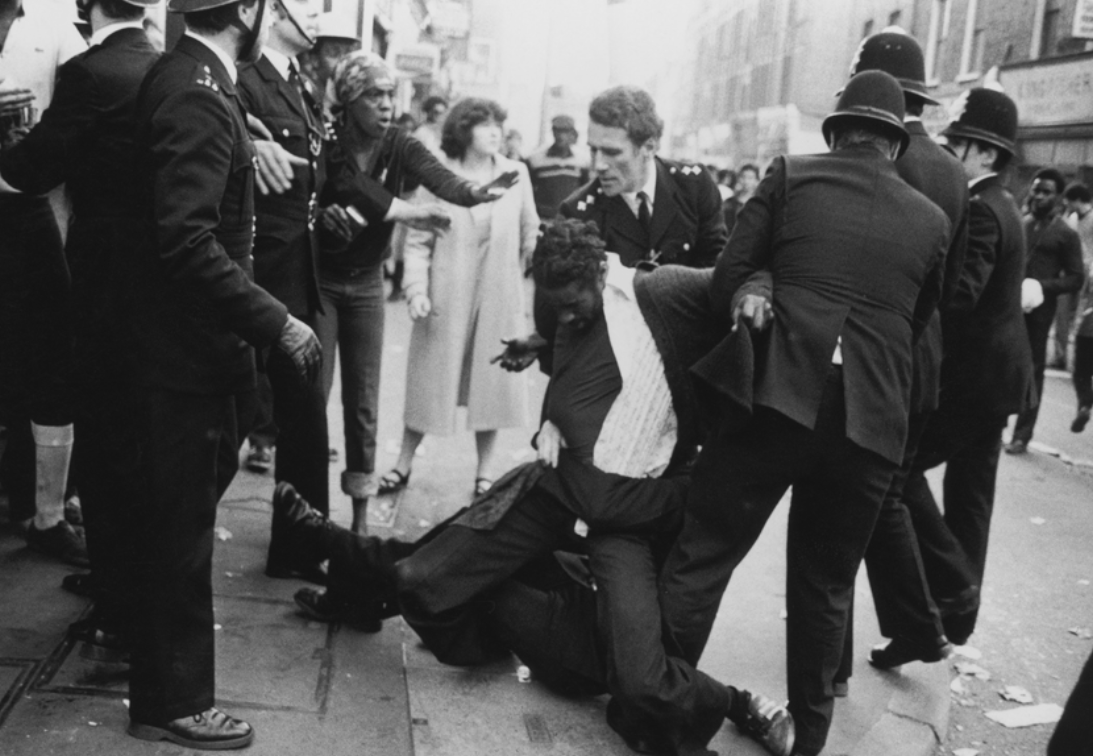
Your support helps us to tell the story
From reproductive rights to climate change to Big Tech, The Independent is on the ground when the story is developing. Whether it's investigating the financials of Elon Musk's pro-Trump PAC or producing our latest documentary, 'The A Word', which shines a light on the American women fighting for reproductive rights, we know how important it is to parse out the facts from the messaging.
At such a critical moment in US history, we need reporters on the ground. Your donation allows us to keep sending journalists to speak to both sides of the story.
The Independent is trusted by Americans across the entire political spectrum. And unlike many other quality news outlets, we choose not to lock Americans out of our reporting and analysis with paywalls. We believe quality journalism should be available to everyone, paid for by those who can afford it.
Your support makes all the difference.On an April day in 1981, local anger at entrenched racism and police mistreatment erupted onto the streets of south London.
It was Thatcher’s Britain, and social inequality was growing, with soaring unemployment rates among Black Britons.
The already iconic neighbourhood of Brixton has, in the 40 years since, become synonymous with the riots that followed, a moment which caused the powers-that-be to finally ask questions of themselves about policing, racism and identity.
While undoubtedly a watershed moment in the movement for race equality in Brixton – the Scarman report, produced in November of same year to examine the riot, acknowledged for the first time the discriminatory policing of Black people – 40 years later, and many locals are still questioning what has changed.
And this anniversary could perhaps not feel more relevant, following the recent publication of the government’s controversial and divisive race report – accused of glorifying slavery, it also denied the existence of institutional racism in the UK.
Across the Atlantic, Derek Chauvin is on trial for killing George Floyd, whose death led to global Black Lives Matter protests asking that basic human rights no longer be denied to people of a certain skin colour.
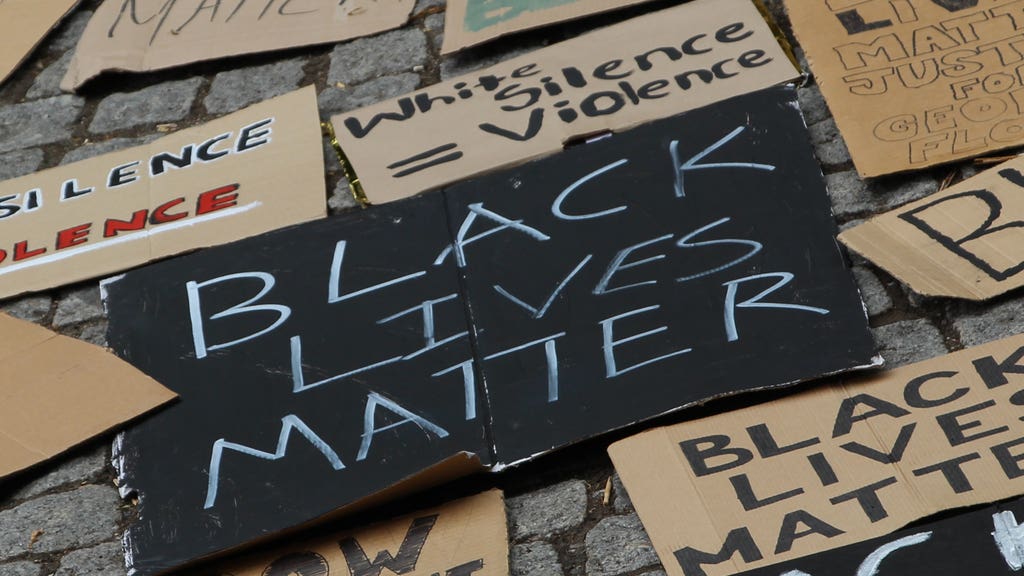
Brixton resident Nancy Potter is quick to draw a comparison between Margaret Thatcher’s Conservative government of the time and the current administration.
“It is significant that, 40 years later, we have another right-wing Tory government that doesn’t care about poor or marginalised communities,” she says.
“I would argue that not much has changed at all. Stop and search is still disproportionally focused on young black men,” Potter says.
Young Black men in London are 19 times more likely to be stopped and searched than the general population, a study of official data by University College London shows.
“Plus the pandemic has really highlighted the divide between rich and poor in Brixton in terms of digital access, housing space, and access to space to study and work.”
For retired bus driver Sherron Richards, 56, who has lived in Brixton for 20 years, many of the tensions that led to the riot in 1981, especially around policing, still exist today.
“Things did change after the riot, especially after the Scarman report. Black people were starting to be listened to. It did feel like a burden had been lifted,” she tells The Independent today from Spain, where she moved three years ago.
“But any progress that the police had made slowly started to slip away – especially since the country started to become more nationalistic. With the rise of the far-right, being racist is seen as acceptable.”
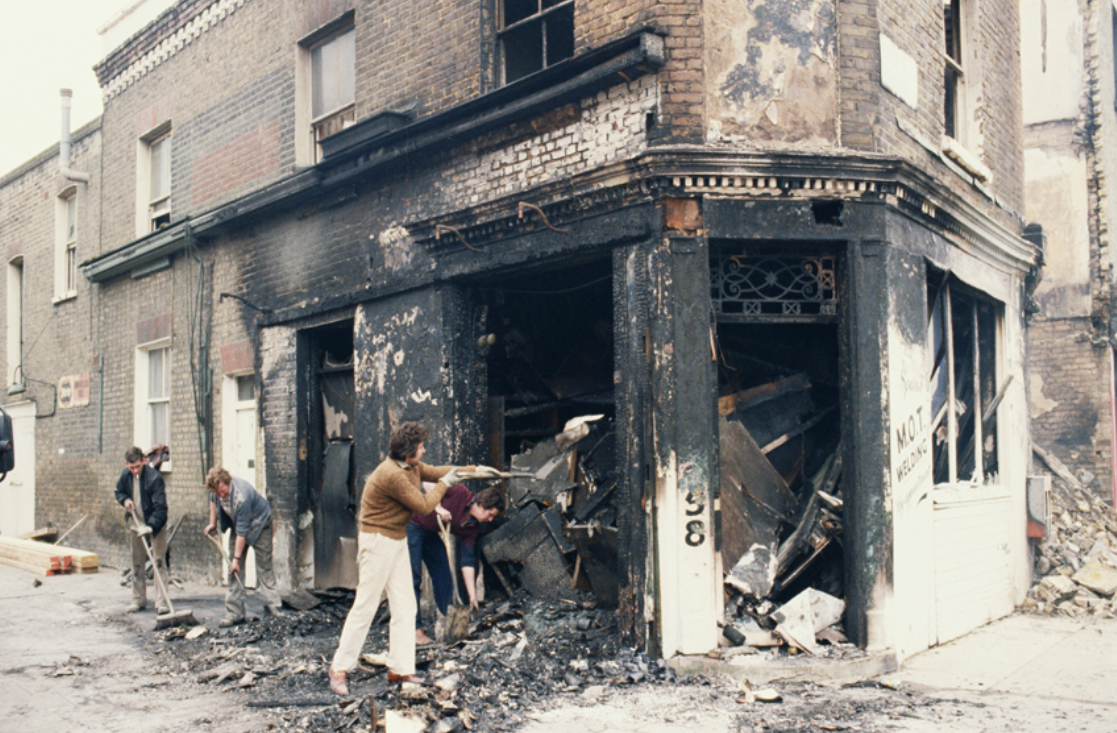
Her own 25-year-old son, who still lives in south London, is stopped and searched on a regular basis – a policing tactic that she described as the “new sus laws”.
The original sus law (from “suspected person”) was a precursor to today’s stop and search powers, and was abolished in the wake of the riot.
When Richards recently returned for a visit, she said the area felt different to the Brixton she used to know.
“I found the market to be soulless and cold. It has a million restaurants in a very small area, it seemed like there was a lot of white young people and elderly Black people. The vibrancy has disappeared,” she says.
Olympic athlete and local resident Abdul Buhari similarly says that Brixton today is struggling to keep its identity.
“The challenge Brixton has now is maintaining some of its heritage as many of the shops can no longer afford to be in Brixton, and to some extent some of the residents too.”
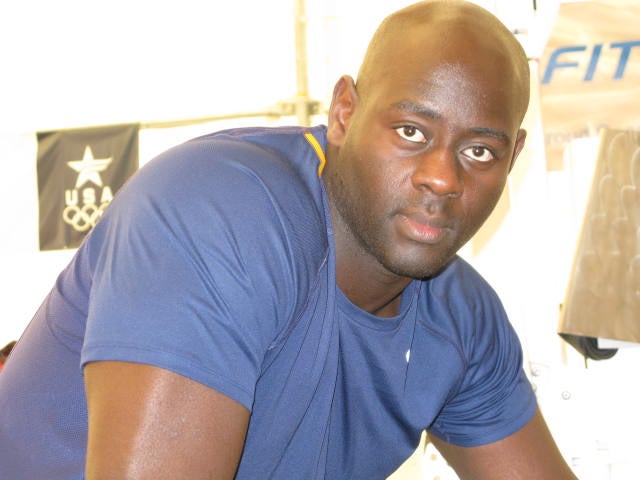
The sportsman is, of course, referring to the gentrification that has transformed the face of Brixton over the past few years and seen local traders priced out as property prices have sky-rocketed.
This has led to a forced exodus of original residents, many of whom were working class, Black, or both – to make way for white, middle-class residents.
For Edwin Danso, podcast producer, who lived in Brixton until recently, this year’s anniversary feels significant, “especially with the recent release of the government report on institutional racism.”
“This community has had to protect itself on many levels since the uprising 40 years ago; from the Brixton bombing and countless instances of knife and gun crime, there’s been a lot of trauma.”
In 1999, the area’s Electric Avenue became the first target in a series of horrific nail bomb attacks targeting minority communities in London – the next two focusing on Asian and LGBT+ groups. A neo-Nazi was found guilty of murder.
But, Danso says, “the community is iconic; it’s known globally because of its struggles and successes”.
And if wider demands for equality are met with real answers, then the battle for progress is not yet over.
“Last year, BLM protesters marched because young people feel we haven’t moved on far enough with race and equality and on many levels, we haven’t economically.
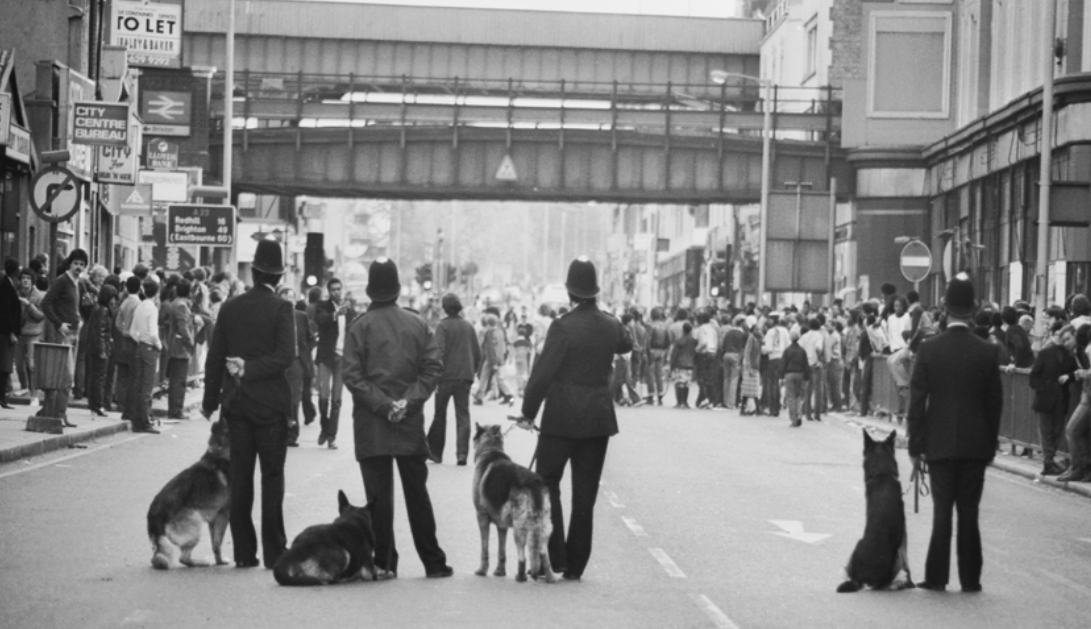
“But if we can create more inclusive initiatives lead by the community and supported by local authorities, things can only get better.”
For Miranda Sawyer, a journalist who has lived in Brixton since 1990, “I do think that some aspects have changed, but there is still a long way to go,” pointing to the recent policing bill and the race report.
“We went to a couple of Black Lives Matter events in Brixton, and they were well attended and policed sensitively,” she tells The Independent.
“But Black people need to be supported by the police in their everyday lives, to be listened to and taken seriously when they say, for instance, that their child has gone missing or they’re victims of crime.”
“Institutional racism, despite what the recent race report says, and unconscious bias is very real. We only have to look at how the Windrush generation have been treated to see that,” Sawyer says.
Still Brixton, once dubbed The Black Capital of Britain, has endured much.
Through its various iterations and in spite of – maybe even because of – its scars, the area continues to hold a special place in people’s hearts, including residents past and present.
The riots of 1981 may have alarmed wider society, with newspaper front pages focusing on injured police rather than the root causes, they heartened local residents who saw the unrest as sanctified, much-needed resistance to oppression.
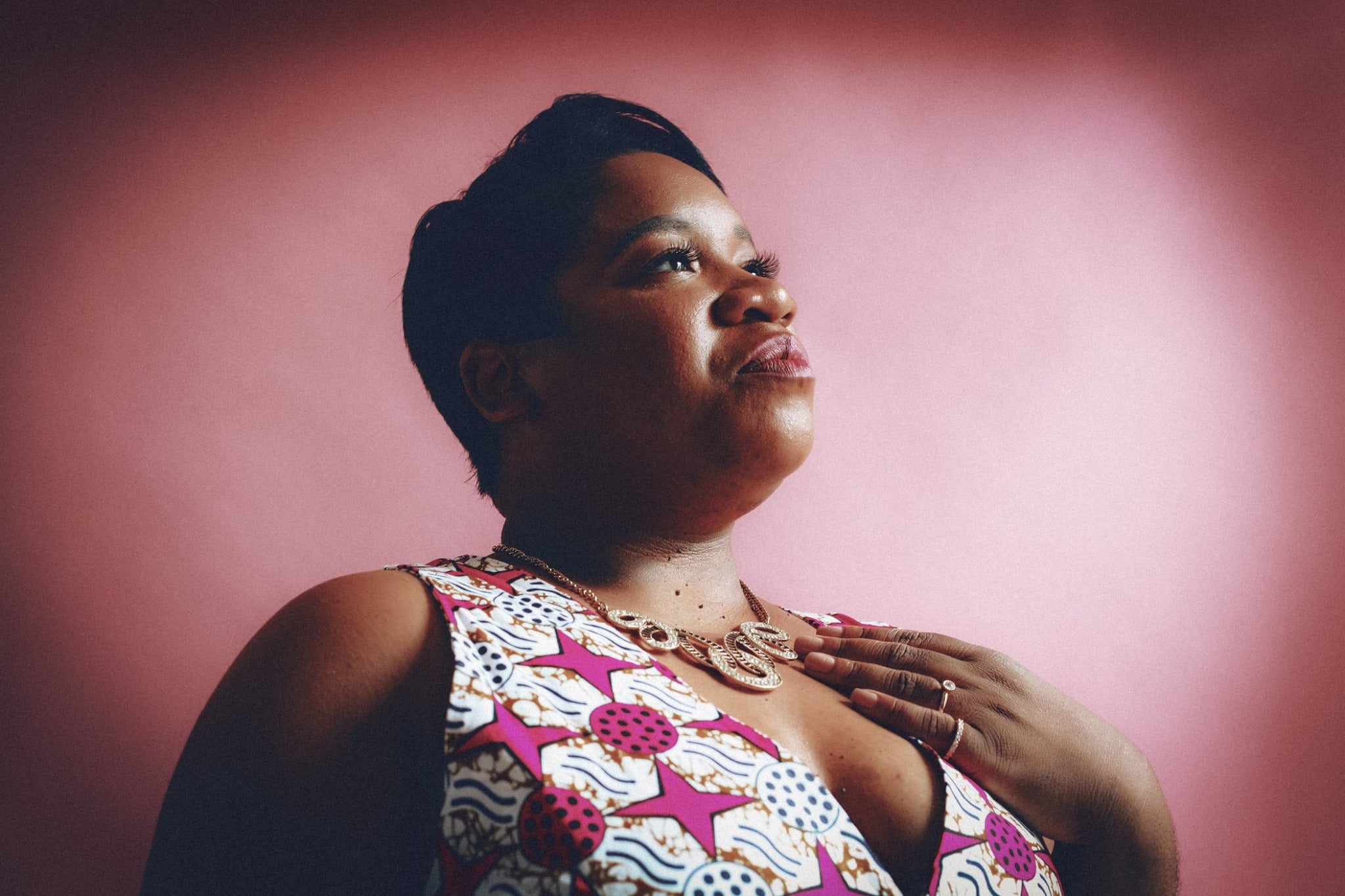
And for many, the 40th anniversary reminds them of how much they love the place they know as home.
For singer-songwriter Rachel Huggins, 40, who has lived in Brixton her whole life, the district means “home”.
“It’s somewhere I can feel comfortable walking by day or night,” the music teacher tells The Independent.
“Brixton means somewhere I fit in without judgment.
“Brixton means racing down to Choice FM or Red Records after school to see if you can see any music celebrities or stopping in Our Price looking for singles with instrumentals on so I can write songs to them. I love the place; it means ‘home’ to me.”
Subscribe to Independent Premium to bookmark this article
Want to bookmark your favourite articles and stories to read or reference later? Start your Independent Premium subscription today.
Join our commenting forum
Join thought-provoking conversations, follow other Independent readers and see their replies
Comments